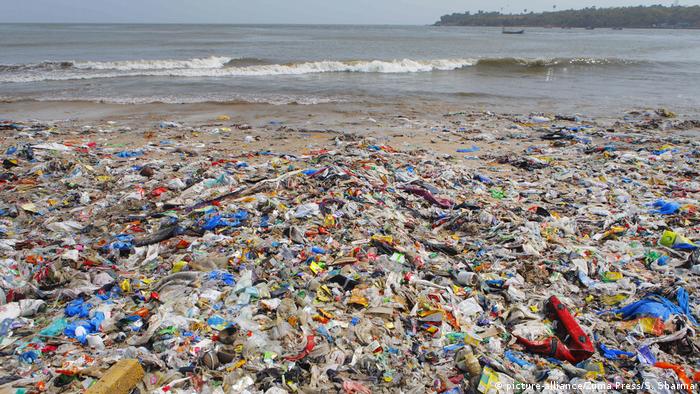The German Cabinet came to the agreement after months of speculation and the ban will mean the country falls in line with an EU directive to reduce waste. The prohibition will come into effect from July 2021.

The German Cabinet agreed on Wednesday to end the sale of single-use plastic straws, cotton buds and food containers from July next year, bringing it in line with a European Union directive intended to reduce the amount of plastic waste.
The move means the sale of single-use cutlery, plates, stirring sticks and balloon holders, as well as polystyrene cups and boxes, will be banned from July 3, 2021.
Read more: China to ban single-use plastic bags and straws
Environment Minister Svenja Schulze said the decision was part of an effort to move away from a "throw-away culture." Indeed, up to 20% of trash collected in parks and other public spaces in Germany consists of single-use plastic, primarily polystyrene containers.
"Many single-use plastic products are superfluous and non-sustainable use of resources," Schulze said.
Germany amassed a record 18.7 million tons of packaging waste in 2017, according to data published by the Federal Environmental Agency (UBA).
Plastic takes decades to degrade and microscopic particles have been found inside fish, birds, and other animals.
Polystyrene pollution
In a separate development, scientists have come across polystyrene in the guts of tiny, soil-dwelling organisms in the Antarctic.
The discovery raises the prospect that microplastics pollution has already "deeply" entered the planet's most remote land-based ecosystems.
Read more: Coronavirus aggravates Thailand's plastic waste crisis
While the presence of microplastics across the world's seas is not unknown to researchers, the study illustrated the first examples of contamination in the Antarctic terrestrial food chain.
"Plastics have therefore entered even some of the most remote soil food webs on the planet, with potential risks for the whole biota and ecosystems," the study's authors said after their findings were published in the journal Biology Letters.
VIDEO
No comments:
Post a Comment